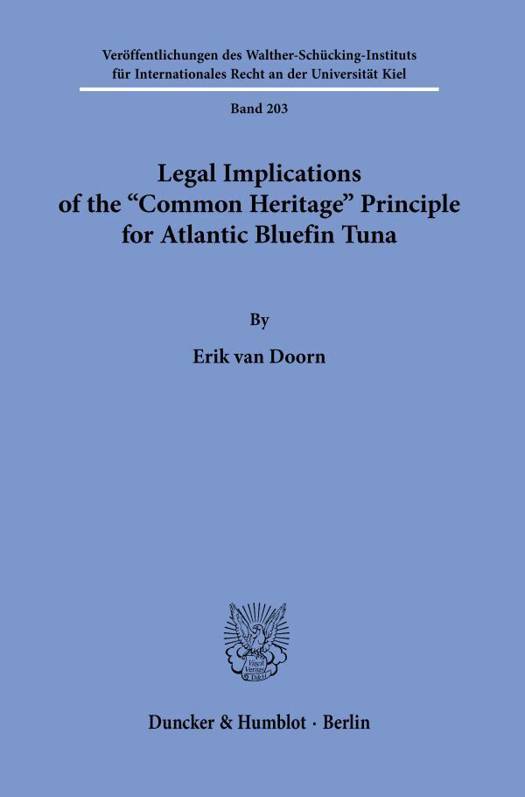
- Afhalen na 1 uur in een winkel met voorraad
- Gratis thuislevering in België vanaf € 30
- Ruim aanbod met 7 miljoen producten
- Afhalen na 1 uur in een winkel met voorraad
- Gratis thuislevering in België vanaf € 30
- Ruim aanbod met 7 miljoen producten
Zoeken
Legal Implications of the Common Heritage Principle for Atlantic Bluefin Tuna
Erik Van Doorn
Paperback | Engels | Veröffentlichungen des Walther-Schücking-Instituts für Internationales Recht an der Universität Kiel | nr. 203
€ 179,95
+ 359 punten
Omschrijving
Many fisheries management systems have individual rights at their basis but are not always successful. The question is what would have to change in fisheries law when community rights form the basis of management. Applying this idea globally, the principle of the common heritage of humankind could provide a future foundation. The principle incorporates intra- and intergenerational justice and has a clear biocentric component but is now only applicable to the ocean floor beyond national jurisdiction and to celestial bodies other than Earth. If this principle would also apply to highly migratory fish species like Atlantic bluefin tuna, not only an analysis of the applicable law but also of the principles roots in environmental ethics, the economic consequences of such application and a comparison with the idea of public trusteeship provide helpful insights. It appears that the common heritage of humankind can enable both utilisation and preservation of natural resources.
Specificaties
Betrokkenen
- Auteur(s):
- Uitgeverij:
Inhoud
- Aantal bladzijden:
- 242
- Taal:
- Engels
- Reeks:
- Reeksnummer:
- nr. 203
Eigenschappen
- Productcode (EAN):
- 9783428158331
- Verschijningsdatum:
- 16/09/2021
- Uitvoering:
- Paperback
- Formaat:
- Trade paperback (VS)
- Afmetingen:
- 155 mm x 231 mm
- Gewicht:
- 3619 g

Alleen bij Standaard Boekhandel
+ 359 punten op je klantenkaart van Standaard Boekhandel
Beoordelingen
We publiceren alleen reviews die voldoen aan de voorwaarden voor reviews. Bekijk onze voorwaarden voor reviews.








